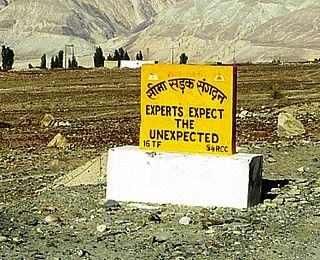
An expert is somebody who has a broad and deep understanding and competence in terms of knowledge, skill and experience through practice and education in a particular field. Informally, an expert is someone widely recognized as a reliable source of technique or skill whose faculty for judging or deciding rightly, justly, or wisely is accorded authority and status by peers or the public in a specific well-distinguished domain. An expert, more generally, is a person with extensive knowledge or ability based on research, experience, or occupation and in a particular area of study. Experts are called in for advice on their respective subject, but they do not always agree on the particulars of a field of study. An expert can be believed, by virtue of credentials, training, education, profession, publication or experience, to have special knowledge of a subject beyond that of the average person, sufficient that others may officially rely upon the individual's opinion on that topic. Historically, an expert was referred to as a sage. The individual was usually a profound thinker distinguished for wisdom and sound judgment.
A teaching method comprises the principles and methods used by teachers to enable student learning. These strategies are determined partly on subject matter to be taught and partly by the nature of the learner. For a particular teaching method to be appropriate and efficient it has to be in relation with the characteristic of the learner and the type of learning it is supposed to bring about. Suggestions are there to design and selection of teaching methods must take into account not only the nature of the subject matter but also how students learn. In today's school the trend is that it encourages much creativity. It is a known fact that human advancement comes through reasoning. This reasoning and original thought enhances creativity.

Adult education, distinct from child education, is a practice in which adults engage in systematic and sustained self-educating activities in order to gain new forms of knowledge, skills, attitudes, or values. It can mean any form of learning adults engage in beyond traditional schooling, encompassing basic literacy to personal fulfillment as a lifelong learner. and to ensure the fulfillment of an individual.
Instructional scaffolding is the support given to a student by an instructor throughout the learning process. This support is specifically tailored to each student; this instructional approach allows students to experience student-centered learning, which tends to facilitate more efficient learning than teacher-centered learning. This learning process promotes a deeper level of learning than many other common teaching strategies.
Situated learning is a theory that explains an individual's acquisition of professional skills and includes research on apprenticeship into how legitimate peripheral participation leads to membership in a community of practice. Situated learning "takes as its focus the relationship between learning and the social situation in which it occurs".

Problem-based learning (PBL) is a student-centered pedagogy in which students learn about a subject through the experience of solving an open-ended problem found in trigger material. The PBL process does not focus on problem solving with a defined solution, but it allows for the development of other desirable skills and attributes. This includes knowledge acquisition, enhanced group collaboration and communication.
Transformative learning, as a theory, says that the process of "perspective transformation" has three dimensions: psychological, convictional, and behavioral.
Transformative learning is the expansion of consciousness through the transformation of basic worldview and specific capacities of the self; transformative learning is facilitated through consciously directed processes such as appreciatively accessing and receiving the symbolic contents of the unconscious and critically analyzing underlying premises.

Experiential learning (ExL) is the process of learning through experience, and is more narrowly defined as "learning through reflection on doing". Hands-on learning can be a form of experiential learning, but does not necessarily involve students reflecting on their product. Experiential learning is distinct from rote or didactic learning, in which the learner plays a comparatively passive role. It is related to, but not synonymous with, other forms of active learning such as action learning, adventure learning, free-choice learning, cooperative learning, service-learning, and situated learning.

Andragogy refers to methods and principles used in adult education. The word comes from the Greek ἀνδρ- (andr-), meaning "man", and ἀγωγός (agogos), meaning "leader of". Therefore, andragogy literally means "leading men", whereas "pedagogy" literally means "leading children".

Constructivism is a theory in education which posits that individuals or learners do not acquire knowledge and understanding by passively perceiving it within a direct process of knowledge transmission, rather they construct new understandings and knowledge through experience and social discourse, integrating new information with what they already know. For children, this includes knowledge gained prior to entering school. It is associated with various philosophical positions, particularly in epistemology as well as ontology, politics, and ethics. The origin of the theory is also linked to Swiss developmental psychologist Jean Piaget's theory of cognitive development.
Reflective practice is the ability to reflect on one's actions so as to take a critical stance or attitude towards one's own practice and that of one's peers, engaging in a process of continuous adaptation and learning. According to one definition it involves "paying critical attention to the practical values and theories which inform everyday actions, by examining practice reflectively and reflexively. This leads to developmental insight". A key rationale for reflective practice is that experience alone does not necessarily lead to learning; deliberate reflection on experience is essential.
Self-regulated learning (SRL) is one of the domains of self-regulation, and is aligned most closely with educational aims. Broadly speaking, it refers to learning that is guided by metacognition, strategic action, and motivation to learn. A self-regulated learner "monitors, directs, and regulates actions toward goals of information acquisition, expanding expertise, and self-improvement”. In particular, self-regulated learners are cognizant of their academic strengths and weaknesses, and they have a repertoire of strategies they appropriately apply to tackle the day-to-day challenges of academic tasks. These learners hold incremental beliefs about intelligence and attribute their successes or failures to factors within their control.
An intelligent tutoring system (ITS) is a computer system that aims to provide immediate and customized instruction or feedback to learners, usually without requiring intervention from a human teacher. ITSs have the common goal of enabling learning in a meaningful and effective manner by using a variety of computing technologies. There are many examples of ITSs being used in both formal education and professional settings in which they have demonstrated their capabilities and limitations. There is a close relationship between intelligent tutoring, cognitive learning theories and design; and there is ongoing research to improve the effectiveness of ITS. An ITS typically aims to replicate the demonstrated benefits of one-to-one, personalized tutoring, in contexts where students would otherwise have access to one-to-many instruction from a single teacher, or no teacher at all. ITSs are often designed with the goal of providing access to high quality education to each and every student.
This glossary of education-related terms is based on how they commonly are used in Wikipedia articles. This article contains terms starting with A – C. Select a letter from the table of contents to find terms on other articles.
Dialogue Education is a popular education approach to adult education first described by educator and entrepreneur Jane Vella in the 1980s. This approach to education is a proprietary commercial product licensed by Vermont-based company Global Learning Partners that draws on various adult learning theories, including those of Paulo Freire, Kurt Lewin, Malcolm Knowles and Benjamin Bloom. It is a synthesis of these theories into principles and practices that can be applied in a concrete way to learning design and facilitation. Dialogue Education is a form of Constructivism and can be a means for Transformative learning,.
E-learning theory describes the cognitive science principles of effective multimedia learning using electronic educational technology.
The worked-example effect is a learning effect predicted by cognitive load theory. Specifically, it refers to the learning effect observed when worked examples are used as part of instruction, compared to other instructional techniques such as problem-solving and discovery learning. According to Sweller: "The worked example effect is the best known and most widely studied of the cognitive load effects".
Online tutoring is the process of tutoring in an online, virtual, or networked, environment, in which teachers and learners participate from separate physical locations. Aside from space, literature also states that participants can be separated by time.
The expertise reversal effect refers to the reversal of the effectiveness of instructional techniques on learners with differing levels of prior knowledge. The primary recommendation that stems from the expertise reversal effect is that instructional design methods need to be adjusted as learners acquire more knowledge in a specific domain. Expertise is described as "the ability to perform fluently in a specific class of tasks."
Phenomenon-based learning is a multidisciplinary, constructivist form of learning or pedagogy where students study a topic or concept in a holistic approach instead of in a subject-based approach. PhBL includes both topical learning, where the phenomenon studied is a specific topic, event, or fact, and thematic learning, where the phenomenon studied is a concept or idea. PhBL emerged as a response to the idea that traditional, subject-based learning is outdated and removed from the real-world and does not offer the optimum approach to development of 21st century skills. It has been used in a wide variety of higher educational institutions and more recently in grade schools.





